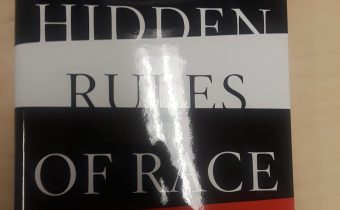The Hidden Rules of Race: Barriers to An Inclusive Economy
Andrea Flynn, Susan R. Holmberg, Dorian T. Warren & Felicia J. Wong
Cambridge University Press
221 pages
Contemporary understanding of racial realities facing African Americans in the United States are narrowed down to one of two viewpoints. Some thinkers espouse that Black people must “do better” and pull themselves up by their bootstraps, while others point out that there is a pervasive, systemic reason for all of the obstacles that we face as a people. As scholars, activists, policy makers, and sociologists grapple with all aspects of how racial inequality affects the American landscape, there is a constant battle of political wills. It shapes the landscape of what is advocated, and what is in the parameters of acceptable discourse.
The people and institutions on the side of blaming the individual for social problems, and the Black community in general for their own oppression have a vested interest in not challenging the narrative. It would mean dismantling many of these structures. While some would rather accept analyses from actors and other celebrities, there are people out here doing the work that can back their musings with actual data and research. People that reject the premise because it does not fit in with their established worldview have very little to stand on, and should be called out whenever possible.
The Hidden Rules of Race is a book that brings historical context and data to this ongoing discussion. This book tackles issues facing Black America, using recent research. Written by the Roosevelt Institute, an economic research body, this book is a collaboration from four co-authors analyzing aspects of American life that are affected by inequality. In working to understand all aspects of Black American life that racial inequality define, this book goes into ways in which racial rules have stifled efforts of this group to fully participate. Grounded in the principle that the past weighs heavily on the present, this work deals with ways in which unequal rules have effected Black American life in terms of wealth, income, education, criminal justice, health, and democratic participation.
This book is not an easy read. It includes a lot of actual numbers, and is written in heavy academic language. Compiling all of this information had to be no easy feat, and you will find yourself having to highlight certain passages just for clarity. In addition, it will not necessarily tell those who want a rosy message what they want to hear.
It refers to many scholarly books, but is able to stand on its own. Referring to the work of scholars like William Julius Wilson, Harriet Washington, and Michelle Alexander, this book adds to the attempt of progressive thinkers to understand what Black Americans face at this particular time in history. As the book posits, we are living in a time of retrenchment and reaction. Many thinkers reject out of hand that in the early 21st century, there is a system working against the interests of Black Americans. This book does a good job of proving such people wrong, with up to date data to bolster the arguments. For those who want a book that adeptly deals with the matter of the racial wealth gap in the United States, The Hidden Rules of Race is a great resource.

